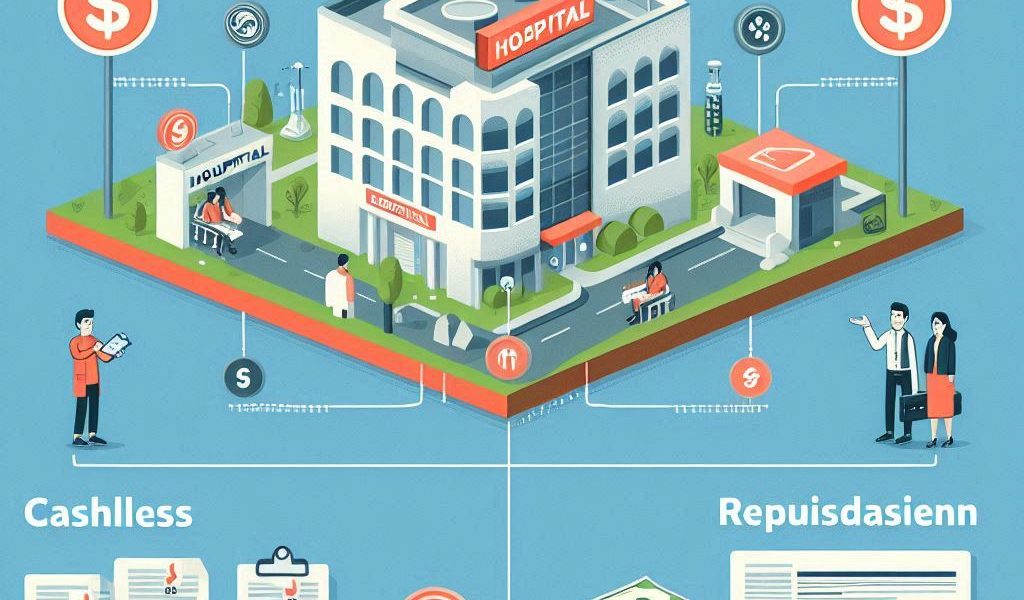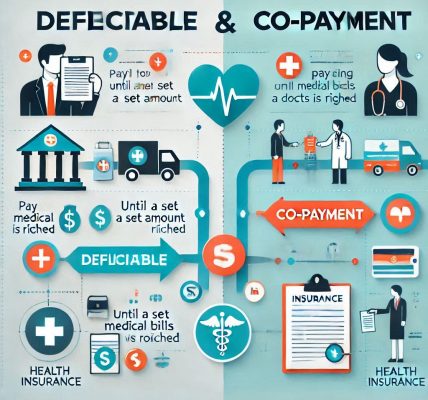When it comes to health insurance, two of the most commonly discussed options are cashless and reimbursement policies. Both offer financial protection during medical emergencies, but they function in different ways. Understanding these two can help you make an informed decision about your health insurance coverage. In this blog post, we’ll explore the key differences between cashless and reimbursement health insurance policies, their advantages, and which one might be best for you.
What is Cashless Health Insurance?
Cashless health insurance is a type of policy that allows policyholders to receive treatment without having to pay upfront. The insurer directly settles the bill with the hospital or healthcare provider. The cashless facility is available only at network hospitals affiliated with the insurance provider. Under this system, once the insured person is admitted to a network hospital, the treatment expenses are covered by the insurance company, subject to the terms and conditions of the policy.
How Does Cashless Health Insurance Work?
- Network Hospitals: To avail of the cashless treatment, you need to choose a hospital that is part of the insurer’s network.
- Pre-Authorization: In case of planned hospitalization, pre-authorization from the insurer is required. For emergency treatment, the insurer is usually notified after admission.
- No Upfront Payment: The insurance company directly settles the bill with the hospital, and you don’t have to pay upfront (except for certain non-covered expenses like personal items or the deductible).
Advantages of Cashless Health Insurance
- Hassle-Free Experience: No need to pay for the treatment upfront.
- Immediate Treatment: You don’t need to worry about arranging funds in emergencies.
- Simplified Process: The insurer manages the payment process with the hospital.
What is Reimbursement Health Insurance?
Reimbursement health insurance works differently. Under this plan, the insured individual pays the treatment expenses first and then files a claim with the insurer for reimbursement. The insurer will process the claim and reimburse the policyholder for the eligible amount, subject to policy terms and conditions.
How Does Reimbursement Health Insurance Work?
- Out-of-Pocket Payment: Initially, you need to pay the hospital bills, either at the time of discharge or during the treatment.
- Claim Filing: After the treatment, you submit the required documents (bills, discharge summary, etc.) to the insurer for reimbursement.
- Settlement: The insurer reviews the claim, and if everything is in order, they reimburse you for the eligible expenses.
Advantages of Reimbursement Health Insurance
- Flexibility: You can choose any hospital, even if it’s not in the insurer’s network.
- More Options: This option is ideal for those who prefer a broader selection of hospitals or specialized treatments not available in network hospitals.
- Transparency: You know exactly how much you’re paying for each treatment, which can help you track expenses.
Key Differences Between Cashless and Reimbursement Health Insurance
| Feature | Cashless Health Insurance | Reimbursement Health Insurance |
|---|---|---|
| Payment Process | Direct settlement by insurer with network hospital | Pay first, then claim reimbursement from the insurer |
| Hospital Network | Treatment must be done in a network hospital | Can avail treatment in any hospital, network or non-network |
| Pre-Authorization | Pre-authorization required for planned hospitalization | No pre-authorization required, except for certain critical cases |
| Payment Timing | No upfront payment required from the insured | You pay upfront and file a claim for reimbursement afterward |
| Claim Process | Simple and quicker, as the insurer settles bills directly | Involves submission of bills and documents for reimbursement |
| Convenience | Ideal for emergencies or situations where immediate treatment is needed | Ideal for those who want flexibility in hospital choices |
Which One is Better for You?
Both cashless and reimbursement health insurance policies come with their own set of benefits, and the decision ultimately depends on your preferences and circumstances.
- Cashless Health Insurance is ideal for those who prefer a stress-free process, especially during medical emergencies. If you want to avoid the hassle of paying upfront and dealing with reimbursement procedures, cashless insurance is a great choice.
- Reimbursement Health Insurance is more suited for people who want flexibility in choosing hospitals. If you’re open to paying for treatment initially and waiting for the reimbursement process, this option provides more freedom.
Conclusion
Understanding the differences between cashless and reimbursement health insurance is essential when choosing the right plan for you. While cashless insurance offers a smooth and quick experience, reimbursement insurance provides more flexibility in terms of hospital choice. It’s crucial to evaluate your needs, hospital preferences, and financial situation before making a decision.




